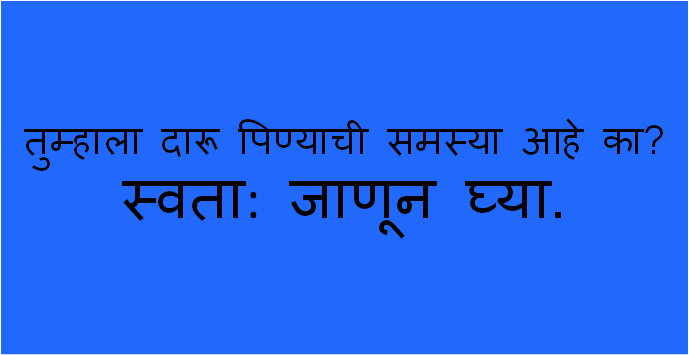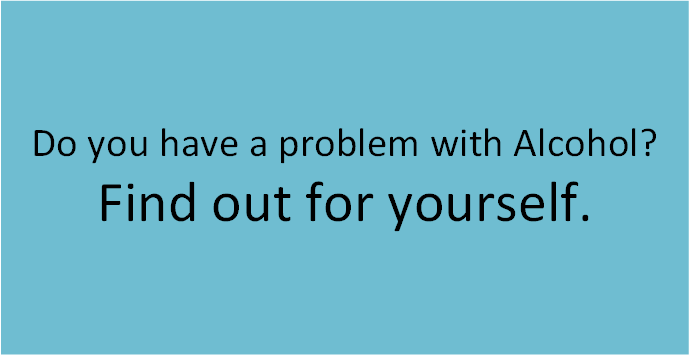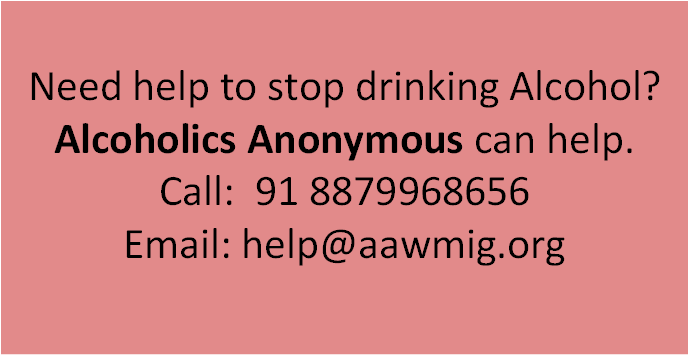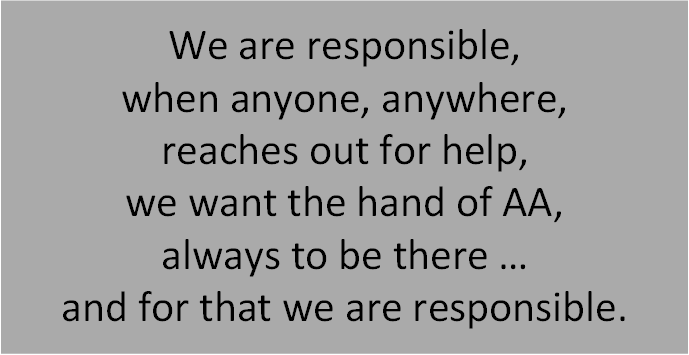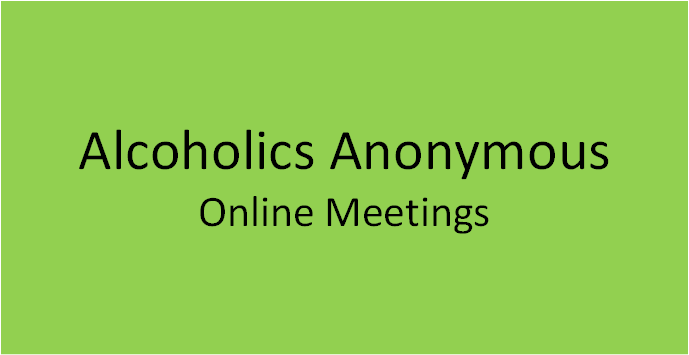Alcoholics were being admitted to hospitals, dried out and nursed to health much before A.A. was founded. However, most would abstain from drinking for a short while and thereafter revert. They would soon reach the stage of helplessness and return to hospitals. It was observed that, progressively, their condition – health, thinking, morals, finances, etc. – were worsening. And, progressively, they were being socially ostracized leaving behind them broken homes and relationships. Hospitals were in a fix as alcoholics had no funds to meet the bill but needed medical attention.
Hence they decided to admit only those alcoholics who were sponsored. The sponsor’s role was thus visualized as bringing an alcoholic for treatment, visiting and taking care of his welfare during his stay, underwriting his bill and taking him home after discharge.
Evolution
A.A. co-founders Bill W. and Bob S. realised the importance of working with others (carrying the A.A. message) to maintain their own sobriety. They found that prospects had their ego sufficiently deflated and expressed their hopelessness when in hospitals for detoxification. The message of the A.A. programme could be effectively given at this stage. Thus they upgraded alcoholic patients from general wards to rooms so that the sharing could commence forthwith. They regularly visited the patients, spoke to them and on discharge took them home and thereafter to A.A. meetings. Thus sponsorship was adapted in A.A. The scope was expanded and enlarged progressively.
Newcomers found it difficult to comprehend the fact that they have lost their power of choice over alcohol as also the concept of a higher power. They found it hard to believe that their life was a mess and they were just as helpless in managing their lives as they were in controlling their drinking. Thus it became necessary to elaborate and explain to them with individual experience and example how unmanageable we were and would be till the end.
Again, while working on the fourth step and thereafter, the alcoholic needed guidance since he was used to his own view-point and justifications. His attention was on material well-being and morality was at a premium. The inventory was moral, had to be thorough and no item could be overlooked just because its financial and material significance was trivial. A.A. recovery is based on spiritual upliftment – all else fades into the background. Thus, the perspective needs to be focused on morals alone.
The alcoholic had to be initiated into practice of the twelve steps and twelve traditions in all his affairs all the while, apply the A.A. slogans and be readied for A.A. service. He had to be motivated to read A.A. literature and guided to interpret the programme in the right perspective. In doing this, the sponsor works closely on a one-to-one basis with the sponsee and realizes that the quality of his own sobriety gets strengthened as well. Thus, sponsorship has spanned an ever-widening vision in A.A. and has come to stay – both as a necessary guide for the newcomer and quality enhancer for the sponsor.
Criteria for choosing a sponsor
Initially, the person who leads the prospect to meetings is his sponsor. At this stage the duration of sobriety of the sponsor is inconsequential. Gradually, matters of doubt are discussed with fellow members and confidence, based on communications with a given member, is developed. After several sessions, a caring and sharing attitude develops when members respect each other and their anonymity. The single important requirement is that every matter is handled with utmost confidentiality.
When the newcomer perceives that there is at least one person who understands and cares, he turns to him for guidance in matters that were hitherto considered embarrassing. He prays to God and meditates whereafter he decides and communicates his decision to the sponsor. A good AA member is aware of the “Responsibility Statement” and hence does not refuse. Thus, a sponsor has been chosen.
The general tendency is towards locating a person with similar background – educational, social, religious, financial, cultural, professional, etc. (one or several aspects may be simultaneously desired.) General experience is that great help has come from sponsors of dissimilar backgrounds.
Likewise, the value attached to given aspects of life may significantly vary between the sponsor and sponsee. The sponsor may not impose himself upon the sponsee. If one tries to run another’s life he is not sponsor material! Get away from him as fast as you can. That person is on a personal power trip and is NOT carrying the message. Sponsor is a friend, philosopher and guide who shows the path through his own experience and the collective experience of the fellowship published in literature. He has no expectations of the sponsee and does not get disappointed when his advice is ignored.
Only one spiritual guide is recommended by religious and other institutions. However, no such limitation is set in A.A. A number of sponsors/sponsees can be simultaneously had. However, the sponsor may take cognizance of the fact that he may have to reach out/respond to his sponsee at short notice. Therefore, the time available to him and his willingness to go to lengths assumes significance. Sponsors/sponsees are free to change as and when they need so.
However, A.A. experience suggests that men sponsor men and women sponsor women.
Many A.A. members have enjoyed the benefits of having, in addition to A.A. sponsors, professional sponsors – psychiatrists advising on sex related ambiguities, doctors on health issues, preachers on morality, social workers on behavioural and situational approaches, etc.
Functions of a sponsor
A sponsor does everything possible, within the limits of personal experience and knowledge, to help the newcomer get sober and stay sober through the A.A. program. The sponsor shows by present example and drinking history what A.A. has meant – he does not brag about or flout his length of sobriety. Generally he is spontaneous in his response. He always follows up every call for help. He is neither elated when the sponsee accepts the programme nor dejected when he shies away. He encourages attendance at different A.A. groups and exposes the sponsee to other members and a variety of experiences and interpretations of the programme. He urges the newcomer to join in group activities.
He encourages the sponsee to seek the right counsel. He prudently refers to the role of higher power in his life stressing that A.A. does not have a monopoly on God and each one is free to choose his own concept of a higher power. He emphasises on the importance of literature and encourages the sponsee to buy and read A.A. approved literature regularly.
Periodically Steps, Traditions, Concepts and slogans are read, reviewed and knowledge updated. He initiates and encourages participation in service. He explains the scope and structure of A.A. and the functions at the Group, Intergroup and GSO. He encourages the sponsee in twelfth step work and helps him to think and act adhering to the principle of self-support in all his affairs. He encourages independence not just materially but also, morally, mentally, physically and emotionally and progressively weans away dependence on sponsor. Ultimately, our dependence rests with our higher power and nowhere else – thus the sponsor himself becomes redundant. Life has to be lived fairly and squarely alone.
He explains the program to relatives of the alcoholic, if this appears to be useful, and tells them about Al-Anon Family Groups and Ala-teen. He helps the newcomer find a good source of information on given issues.
He stresses the importance of the A.A. recovery programme. When the solution to a given problem posed does not show itself, he readily admits ignorance, refers to others and reverts shortly with the right solution. Finally, the sponsor encourages the newcomer to work with other alcoholics as soon as possible and sometimes begins by taking the newcomer along on Twelfth Step calls. In all work with a newcomer, the sponsor underscores the fact that it is the A.A. recovery program – not the sponsor’s personality or position that is important. Thus, the newcomer learns to lean on the program, not on the sponsor.
What sponsors don’t do
Sponsees inventory is not taken unless specifically asked by him. Generally, giving money on twelfth step calls is dissuaded. Views are not imposed on the sponsee. Promises on what the future holds are not dished out – instead, spiritual benefits reaped as a result of the practice of the programme are elaborated. No one, other than self may be branded an alcoholic.
Sponsors stay away from religious beliefs, family disputes or conflicts, though advice based on personal experience of similar situations may be tendered singly to individuals only if sought. The sponsee may be advised to consult professionals for his problems relating to medicine, psychiatry, law, vocation, etc., which are beyond the scope of A.A. Suggestions based on individual experience in these areas may be avoided.
Sponsors may not over-twelfth step at the cost of his own or the prospect’s family. Likewise, the alcoholic’s physical needs of nutritive food and proper exercise, rest and medication are never neglected. The sponsor never suggests the use of barbitals and sedatives or other medication.
Dealing with slips
If and when the sponsee relapses, he may be reminded that the “Time to call the sponsor is before and not after the drink.” The guilt that sponsee carries after the slip may not be enhanced by reprimanding him. Instead, the nature of the disease may be reviewed and thereafter the first two steps gone through at depth.
He may be told that ‘The only person who does not make a mistake is the one who does nothing. The A.A. programme has evolved out of the mistakes committed and we need to learn from them and not repeat them.’ Thus the sponsee’s determination to stay away from alcohol in the future may be reinforced. Reasonable adjuncts that help stay sober like tokens, chips, coins, chocolates, etc., may be offered.
According to Gresham’s Law: “money drives out the good.” Not all the people who have 20 years of sobriety have good qualities. They manage to stay sober but they white knuckle it. The Big Book says that this book is meant to pass on “exactly how we recovered.”
Role of groups
Each group needs to do a good job of sponsorship. A confidential register of willing sponsors may be maintained and prospective sponsees may be referred to them. This register may be referred to for follow up of newcomers if they are absent from meetings.
Many groups conduct beginners meetings. Groups can sponsor nearby weaker (or ailing) groups and their members. Groups should reach out to new prospects in the community, keep professionals and institutions in the community advised of their activity, volunteer services to hospitals and rehabs in the area especially with respect to out-coming patients or inmates. The groups may encourage members to read and understand the programme first hand, maintain a library and periodically conduct workshops/sessions explaining the structure and functioning of A.A. at the group, zone, Intergroup, area and GSO level.
Narendra K.
As Published in THE TWELFTH STEP Magazine Dec ‘09 – Jan ‘10 Volume 8 / Issue 4